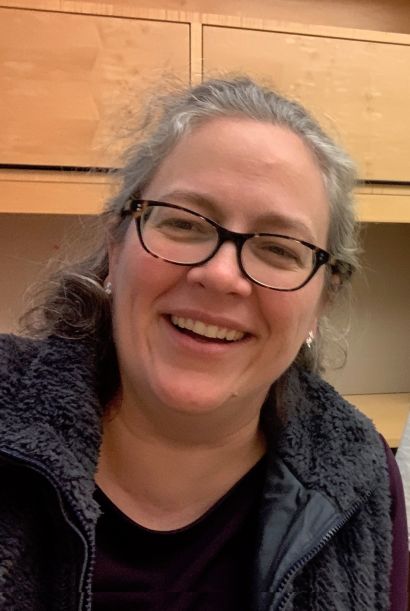- About
- Organization
- Organization Overview
- Dean’s Office
- Department of Bioengineering and Therapeutic Sciences
- Department of Clinical Pharmacy
- Department of Pharmaceutical Chemistry
- Quantitative Biosciences Institute
- Org Chart
- Research
- Education
- Patient Care
- People
- News
- Events
Dumont Lab reveals workings of macromolecular machines
Macromolecular machines can be dynamic yet mechanically robust
By Katherine Krebs / Wed May 20, 2020

Sophie Dumont, PhD
The Department of Bioengineering and Therapeutic Sciences is pleased to announce two exciting, new papers from the Dumont Lab:
-
Published in eLife on March 19, Microneedle manipulation of the mammalian spindle reveals specialized, short-lived reinforcement near chromosomes focuses on how the spindle, a force generating and dynamic machine, holds its structure together to segregate chromosomes. Using a microneedle to pull and deform the spindle, the authors discover that the spindle is structurally reinforced in its center, where it is most dynamic, over short timescales. This could help protect chromosomes from short-lived forces, and yet allow spindle remodeling and chromosome movements over longer timescales.

Diagram of microneedle inserted into cell membrane.
-
Published in the Journal of Cell Biology on May 20, Individual kinetochore-fibers locally dissipate force to maintain robust mammalian spindle structure asks how the spindle remodels under force to maintain its integrity and perform its function. Also using microneedles, this work shows how the spindle dissipates force to preserve its structure under force, through both microtubule dynamics and breakage. The work suggests an engineering principle for spindle structural homeostasis: different physical mechanisms of local force dissipation limit force transmission to preserve robust spindle structure.
Together, the papers provide a framework for understanding how macromolecular machines can be dynamic yet mechanically robust to perform their cellular functions. Both pieces of work were done by students Pooja Suresh and Alexandra Long.
About the lab
The Dumont Lab is interested in how the properties of individual molecules give rise to the mechanics and function of large cellular machines. They focus on the machines that drive cell division, asking how they build themselves through self-organization, and how they generate and respond to force to perform their function robustly and accurately. To answer these questions they use approaches from biophysics, bioengineering and cell biology.
About Dumont
Sophie Dumont, PhD, is an associate professor in the Department of Bioengineering and Therapeutic Sciences and a Chan Zuckerberg Biohub Investigator. She received her BA in physics from Princeton University. She received her PhD in biophysics from UC Berkeley where she probed the mechanics of individual biomolecules with Carlos Bustamante, PhD. There, she became interested in mechanical forces in biology. She was a junior fellow at the Harvard University Society of Fellows and postdoc with Tim Mitchison, PhD, FRS, where she worked on the mechanics of cellular machines, focusing on those that drive cell division. Her research group at UCSF works on the self-organization and emergent mechanics that drive robust chromosome segregation.
Tags
Keywords:
biophysics, Molecular and cellular engineering, Macromolecular structure, Macromolecular machines, cell biology, Self-assembly, Self-organization, Mechanics, Physical biology, systems biology, Cancer Biology, cell division, Laser ablation, Micromanipulation, microfluidics, fluorescence microscopy, Fluorescent Dyes, Image processing
Category:
Sites:
Department of Bioengineering and Therapeutic Sciences
About the School: The UCSF School of Pharmacy aims to solve the most pressing health care problems and strives to ensure that each patient receives the safest, most effective treatments. Our discoveries seed the development of novel therapies, and our researchers consistently lead the nation in NIH funding. The School’s doctor of pharmacy (PharmD) degree program, with its unique emphasis on scientific thinking, prepares students to be critical thinkers and leaders in their field.



